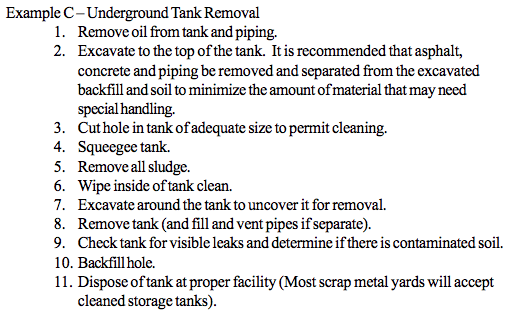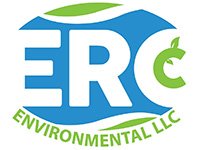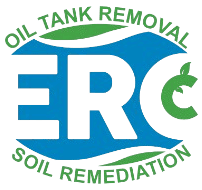New Jersey Oil Tank Regulations
We have shared a lot of information previously on the environmental and financial risks of having a corroding oil tank on a property. In this post we will share a little bit more information on New Jersey’s regulations governing these underground storage tanks (USTs). Here we’ll be referring to tanks categorized as “Unregulated” by the NJDEP, which are the oil tanks ERC most frequently deals with. An unregulated tank is any residential heating oil tank (no limit) or a commercial heating oil tank under 2001 gallons.

Who Can Perform Oil Tank Services
Only individuals or firms such as ERC Environmental that have received certification from the NJDEP are permitted to perform services on oil tanks. There are separate certifications required for tank installation, removal and sub-surface evaluation (which is needed to perform a soil remediation). The NJDEP highly recommends removing all heating oil tanks that are out of service, regardless of whether there is any evidence that the tank has leaked. In this detailed bulletin, they point out the fact that abandoned oil tanks should be removed in most cases as well. This is because even if the tank has been abandoned properly, insurance and mortgage companies simply do not want to take on the risks associated with underground oil tanks.
Discontinuing Oil Tank Use
In cases where individuals decide to switch from using heating oil to natural gas, a regulation called the Uniform Construction Code (UCC) provides that the heating oil tank must be properly removed or abandoned by a certified firm in conjunction with the conversion process. This same code applies to any other situation in which the property owner decides to completely discontinue the use of a present oil tank. In any instance of a tank removal, a demolition permit is required that details the location of the tank and how exactly the tank will be removed or abandoned. A Certificate of Approval will be provided once the tank has been properly removed. State Laws provide that the appropriate fire subcode official is to enforce these regulations.
Regardless of whether an oil tank is removed or abandoned and how the construction is carried out, the fill and vent pipes running to the UST must be taken out. Believe it or not, there have been many incidents where tanks have been removed but the fill pipes were left in place, and trucks delivering oil to the location have pumped oil directly into the ground. Obviously, this is a very serious environmental issue and expensive to clean up so the removal of these fill pipes is absolutely essential.
Oil Tank Removal Accepted Methods
The state of New Jersey provides several specific step-by-step methods for removing or abandoning oil tanks. In the case of an underground oil tank, these instructions are as provided here.
Finally, New Jersey provides regulations for the handling and disposal of wastes involved in an oil tank removal or abandonment. These materials include rags, tank sludge, oil and oil-contaminated water. There are separate authorized facilities for solid wastes and oil, and these substances must be disposed of accordingly. If contamination is found at the site of the removal, it must be reported to the NJDEP and remediation must then be performed. These regulations are provided through the Department of Environmental Protection’s Unregulated Heating Oil Tank (UHOT) Program.

Contact.
Contact us today to get started.
Call: 877-440-TANK (8265)
You can also fill out the form below and we’ll contact you within 24 hours:



